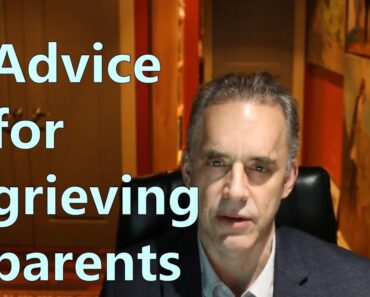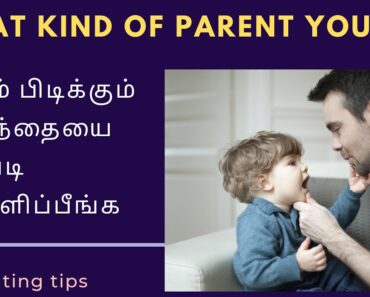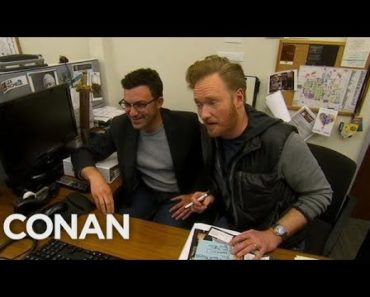Your first instinct may be to shield your children from conflict, but these conversations can actually be comforting for kids of all ages.
The early months of 2022 have already included several distressing world events. From the ongoing COVID-19 pandemic, to protests against vaccine mandates and COVID-19 restrictions, to the Russian invasion of Ukraine—there has been a lot to weigh on the hearts and minds of individuals and families around the world.
If you are a parent, grandparent, teacher or educator, you may ask yourself: Should I talk to kids about these world events? As both child psychologists and parents, we have grappled with this question too. In these times, it can be hard to know whether or not to discuss these issues with our children, and if we do, how should we go about doing it?
As the world navigates challenges and crises, we need to have a blueprint for how to have open and honest discussions with our kids so they can grow up as informed and thoughtful world citizens. Here we provide some ideas for engaging in conversations about the Ukraine invasion with kids, and how to tailor them based on age and maturity levels.
3 reasons to talk to kids about the war in Ukraine
- To help children process difficult emotions that may arise. Although it might seem like a good idea to avoid an in-depth discussion to thwart increased anxiety or alarm, evidence suggests that having a supportive discussion about a stressful event can actually decrease distress. It’s best to “name it to tame it.” Children in families that are more expressive perceive less threat related to a stressor. Having these conversations provides you with the opportunity to help your child make sense of how they might be feeling and to provide reassurance.
- To combat misinformation. In this age of ubiquitous access to news and media, children and teens have likely already been exposed to some kind of information — pictures, video clips or news — about the invasion of Ukraine. Unfortunately, there has been a surge of misinformation and purposeful disinformation shared on social media apps routinely used by youth, such as TikTok and Snapchat. This makes it critical for parents and educators to keep children informed of the Ukraine invasion based on reliable information from reputable sources, and to provide opportunities for children to ask questions.
- To model and encourage compassionate views towards others. Talking to children about the war in Ukraine can model a compassionate view towards fellow humans, regardless of distance or circumstance. Taking the time to talk with children about world events is an opportunity to engage in perspective-taking and to emphasize the importance of understanding the emotions, and contexts of others in a developmentally appropriate way. Asking an adolescent a question such as “what might someone else in this situation be feeling right now?” can support the growth of an empathic view of other’s lives.
Conversations with children under the age of five
Children of different ages and maturity will have different levels of understanding and capacity for processing the information unfolding in Ukraine.
Children under the age of five may have a very limited understanding of the conflict in Ukraine. If your young child asks you a question about what is happening, you can provide them with simple information they can relate to. Avoid providing more detail than requested.
For example, you could say “one country is not being very nice to another country and it is making people feel upset.” Bringing up the conversation with your child allows you to talk about a shared plan and strategies that can help if they are feeling upset about it.
For children of all ages, we also recommend being mindful of exposure to news and media, especially violent or destructive content. This is particularly paramount for young children who have a more limited ability to understand what is happening. It is also important to minimize what young children overhear of adult conversations.
Conversations with school-aged children and adolescents
First, make sure that you are feeling calm and present enough to have the discussion. If you are feeling upset, tired or distressed, it is best to give yourself some time and space before initiating the conversation. It is also best to have the discussion when there are limited distractions and when you can devote sufficient time to it.
Start by asking your child what they have heard or what they might know about the conflict in Ukraine. Next, validate and normalize how they are feeling. If they say it’s distressing for them, you can say: “It can be scary to think about a war; most kids and adults feel scared too.” If your child does not know very much or does not seem to be very disconcerted about what is happening, you can keep the discussion brief.
Regardless of whether they are distressed or not, you can share some factual and developmentally appropriate information. For example, you might look at a map of the world together and share where the conflict is occurring. You can share some basic information about what is happening and why, and where and how they can gather reliable information.
Most importantly, children need reassurance that adults will do everything they can to keep them safe. If needed, you can make a plan to identify distractions or activities to focus on. You could also offer your support or assistance to a Ukrainian friend or neighbour who may be particularly worried or struggling.
Ultimately, by having these conversations, you show your child that you are willing and open to having discussions, even when times are tough. This can help build a lasting foundation to talk about difficult topics.
Our children are not the first generation of children to grow up with wars and distressing world events. What is new is how this generation of young people are accessing and consuming news and world events. It is important for children to be adequately informed and reassured by the adults they trust, and to be provided with opportunities to make sense of how they might be feeling as distressing world events unfold.![]()
Nicole Racine is a postdoctoral research fellow of Psychology at the University of Calgary, Camille Mori is a PhD student in Clinical Psychology at the University of Calgary and Sheri Madigan is an associate professor, the Canada research chair in determinants of child development and a clinical psychologist at the Owerko Centre at the Alberta Children’s Hospital Research Institute and the University of Calgary.
This article is republished from The Conversation under a Creative Commons license. Read the original article.

































